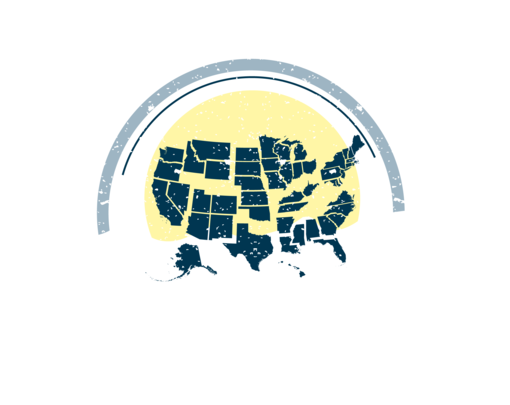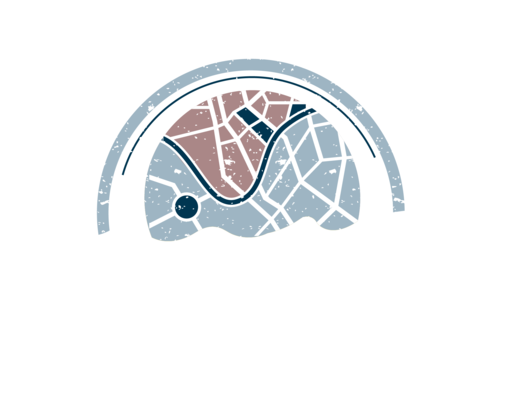Why is pluralism an important value for systemic design?
There is no one-size-fits-all approach to building a community sustaining economy. From a purely practical standpoint, certain social functions need to be exercised at larger scales, and quite simply, this requires different forms of institutional design. We need small independent businesses, cooperatives, neighborhood enterprises, housing and land developments, municipal firms, and regional and national models of larger enterprise. The key principle is to embed DEMOCRACY in all these institutions in diverse ways, appropriate to their individual scales. This means envisioning a system that is fundamentally pluralist—and all the richer for it. Indeed, without plural mechanisms of participation in the democratic life of the community and the nation, individual liberty is crippled—only pluralism prevents a certain kind of democratic belonging from becoming mandatory, a democracy closed in on itself rather than a resilient one open to invention, experimentation, and LIBERTY. At the same time, coherent system shaping planning and decision-making must be organized in diverse ways and at diverse levels of scale.
A pluralist approach is also critical from the perspective of developing a transition strategy. If a systemic design were to be predicated entirely on, say, the “capture of state power” or the complete transformation of the economy into cooperatives, we would all be stuck in place as we waited for some hoped-for game-changing transformation to occur. Pluralism means we can let a thousand flowers bloom, developing diverse experiments in various laboratories of democracy. These different possible directions begin to knit alternatives together into a viable systemic mosaic.
What makes a pluralist commonwealth “pluralist,” and why are more complex forms sometimes important?
The core ideas of the Pluralist Commonwealth—plural forms of democratic ownership, on the one hand, and an emphasis on building from the bottom up, community by community, and only moving to larger scales when necessary, on the other—are critical to the overall systemic design.
In most instances, functional and scale requirements suggest the appropriate patterns for various forms of ownership . For instance, land tends to be managed best by a geographic unit (neighborhood or city). Some forms of industry are best suited to worker ownership, others by small scale private enterprise, and still others by larger public entities. City-wide functions, like electricity or broadband, suggest geographically based public utilities.
Although worker-owned cooperatives and self-managed firms are important elements of the model for small- and medium-sized firms, for larger intermediate scale firms the Pluralist Commonwealth stresses the importance of ownership forms that inherently integrate worker and community (neighborhood or municipal) concerns in more complex relationships. A major goal is to offset pressures that lead any firm, cooperative or privately held, to pollute the community environment if forced to under competitive pressure from other firms. Creating joint ownership forms with the community itself produces a model in which community representatives are required to choose between making a greater profit for both the community and workers by avoiding the cost of environmentally important processes—and accepting the environmental despoliation of the community such decisions produce. (In economic terms, such models “internalize decisions about externalities.”)
The Pluralist Commonwealth draws upon joint worker and community models as they were first proposed by steelworkers in Youngstown, Ohio—and which have been evolving in sophistication and complexity over time, in cities like Cleveland, Ohio and elsewhere. An important element in such integrated “community-worker” models is the application of principles drawn from the experience of the Mondragón Corporation to local geographic and community-building efforts.
The construction of airplanes of globe-spanning scale, high-speed railroad systems, satellite systems (and the rockets needed to put them in orbit) remind us of the importance of larger scale efforts and the likelihood of regional or national enterprise forms (jointly owned and managed, as appropriate, by the workers and communities actually doing the work). Contrary to earlier periods of history, in diverse parts of the world there are now numerous examples of effective forms of large scale public enterprises, ranging from the construction of the largest world-spanning aircraft to high speed rail and internet systems more efficient and faster than our own—forms which can be further refined as time goes on (See OWNERSHIP).
Where can we see pluralism in action today?
Efforts in Colorado, while still for the most part small in scale or tentative, are suggestive of a Pluralist Commonwealth direction. In Denver, immigrant households are creating small-scale, privately owned backyard food businesses, which are linked together within a larger multi-stakeholder cooperative structure called Re:Vision to handle distribution and retail.1 The Rocky Mountain Employee Ownership Center is supporting the formation of small and medium sized worker-owned enterprises, like the Namaste Solar cooperative.2 At the community level, a nonprofit, the Urban Land Conservancy, is developing strategies to hold valuable land near transit lines in trust to spur community development.3 At the city level, Boulder residents are remunicipalizing their electrical utility,4 and at the state level, steps toward a publicly-owned single payer health care cooperative have been taken. Colorado put the matter to a vote in November 2016.5 Unfortunately, the ballot measure didn’t pass. 6 None of these efforts precludes the others, and indeed, as principles of common, cooperative, and community-ownership become more deeply rooted, they may prove to be mutually reinforcing.
Elsewhere, as noted (See PUBLIC), the Evergreen Cooperatives in Cleveland, Ohio offer a model that integrates neighborhood and worker-ownership,7 in Rochester, New York, a related plan building on the Evergreen approach has been put forward for development by Mayor Lovely Warren.8 In Buffalo, New York, a community organizing effort, “PUSH BUFFALO,” has helped develop sustainable and affordable housing, decrease housing abandonment, jumpstart social enterprise to provide living wages for area residents, and created the Grant Street Neighborhood Center, a teen-oriented community center.9
See also:
DEMOCRACY, LIBERTY, OWNERSHIP, PUBLIC
Further reading
Keane Bhatt and Steve Dubb, Educate and Empower: Tools for Building Community Wealth, (Takoma Park, MD: The Democracy Collaborative, 2015).
Robert F Garnett Jr, Erik Olsen, Martha Starr, eds., Economic Pluralism (New York, NY: Routledge, 2010).
Steve Dubb, Conversations on Community Wealth Building (Washington, DC: Democracy Collaborative, 2016).
- 1“Cultivating Thriving, Resilient Communities,” Re:Vision, accessed November 9, 2016.
- 2 “About Us,” Rocky Mountain Employee Ownership Center, accessed on November 9, 2016.
- 3“How We Work,” Urban Land Conservancy, accessed November 9, 2016.
- 4“Energy Future: Goals and Objectives,” City of Boulder Colorado, accessed November 9, 2016.
- 5See: John Daley, “Coloradans Will Put Single-Payer Health Care to a Vote,” Colorado Public Radio, December 19, 201, accessed November 9, 2016;
- 6See: Bruce Jaspen, “Colorado Rejects Single Payer Healthcare Insurance,” Forbes, November 9, 2016, accessed November 9, 2016.
- 7Ted Howard, “Owning Your Own Job is a Beautiful Thing: Community Wealth Building in Cleveland, Ohio,” in Investing in What Works for America’s Communities, eds. Nancy O. Andres and David J. Erickson, (San Francisco, CA: Federal Reserve Bank of San Francisco and Low Income Investment Fund, 2012).
- 8 “C-W City: Rochester, New York,” Democracy Collaborative, September 2015, accessed November 9, 2016.
- 9 “C-W City: Buffalo, New York,” Democracy Collaborative, September 2015, accessed November 9, 2016.





























